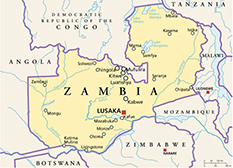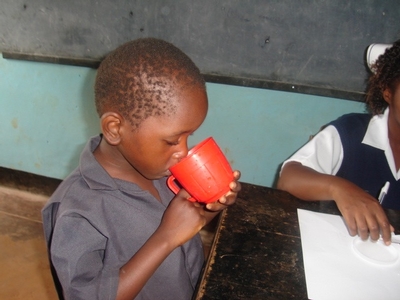Zambia’s Community Health and Nutrition, Gender and Education Support 2 Program (CHANGES2)
 Despite high levels of knowledge, HIV incidence does not seem to be decreasing among adolescents in Zambia. Girls are much more likely to be infected than boys. Intergenerational sex, transactional sex, and multiple concurrent partnerships are normalized. The education sector is struggling to implement effective HIV prevention.
Despite high levels of knowledge, HIV incidence does not seem to be decreasing among adolescents in Zambia. Girls are much more likely to be infected than boys. Intergenerational sex, transactional sex, and multiple concurrent partnerships are normalized. The education sector is struggling to implement effective HIV prevention.
The Community Health and Nutrition, Gender and Education Support 2 Program (CHANGES2) was a USAID-funded education activity supporting the Zambian Ministry of Education from 2005-2009. CHANGES2 strengthened teachers’ classroom pedagogical and leadership skills with a special focus on school health and nutrition, as well as HIV and AIDS prevention and mitigation.
Some key interventions of the CHANGES2 program included:
- Teacher Training – CHANGES2 enhanced pre- and in-service teacher training using central, provincial, and zonal training resources, as well as follow-up professional support for teachers. Teachers’ classroom pedagogical and leadership skills were developed with a special focus on school health, nutrition, and HIV/AIDS mitigation, including support for orphans and vulnerable children.
 Scholarships to Orphans and Vulnerable Children – CHANGES2 supported children orphaned by AIDS in grades 8-12 to keep them enrolled in school and to serve as peer educators in the efforts to mitigate the HIV/AIDS pandemic.
Scholarships to Orphans and Vulnerable Children – CHANGES2 supported children orphaned by AIDS in grades 8-12 to keep them enrolled in school and to serve as peer educators in the efforts to mitigate the HIV/AIDS pandemic.- School Health and Nutrition Services – CHANGES2 expanded successful strategies introduced in Eastern and Southern Provinces to improve the health of students and teachers, linked to improved community health, hygiene, and nutrition benefiting all residents.
- Community Outreach Programs – CHANGES2 built partnerships between schools and communities to promote groups in SHN and HIV/AIDS mitigation activities, foster community support for orphans and vulnerable children, and strengthen the capacity of local organizations to implement Abstinence and Be Faithful programs.
The project sought to strengthen the professional skills of teachers, improve HIV/AIDS prevention and mitigation tactics in schools and communities, expand the school health curriculum and services, and build new school-community outreach programs in four core provinces: Southern, Lusaka, Central, and Copperbelt.